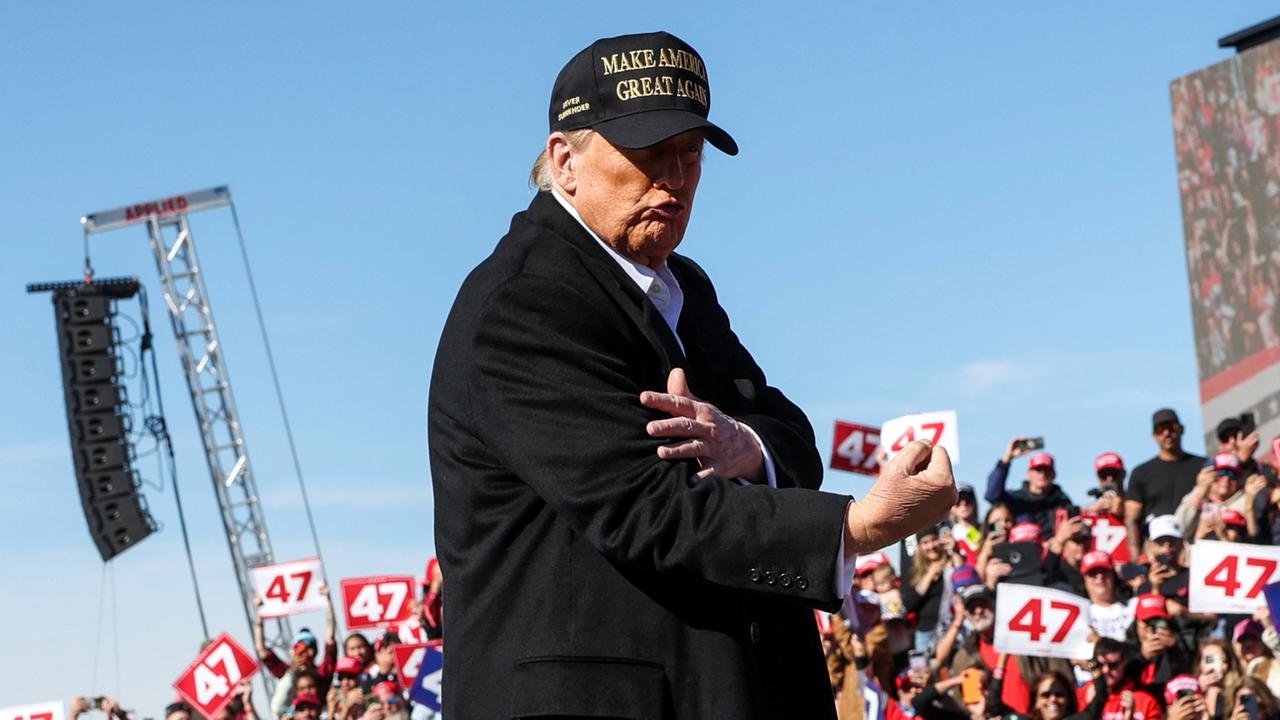Another term for Trump as US President is possible – and is causing concern in the EU. Preparations are already underway to counteract the harsh economic policies of the self-proclaimed deal king.
They were memorable hours in the White House. They ended with a tight hug and kiss on the cheek. The men involved: the then US President Donald Trump and Jean-Claude Juncker, then President of the EU Commission. It is an unexpected moment of transatlantic closeness. The initiative to kiss, Juncker says later in the ARD-Interview, “contrary to my usual behavior” it did not come from him. It was often the Luxembourg Juncker who ruffled women's hair or kissed men on their bald heads.
The even bigger and more important surprise of this July 26, 2018: Juncker manages to defuse a trade conflict by convincing Trump to sign a deal. He had previously threatened, among other things, additional tariffs on European cars for a long time. The guest from Brussels offered that the EU would buy more liquefied gas and soybeans. It was a rather non-binding promise, but one that convinced Trump. Looking back, Juncker speaks of an “inspiration of the moment”. That sounds spontaneous and unplanned. However, it can be assumed that he and his team had prepared very meticulously.
The deal king who doesn't play by the rules
Negotiations like this could soon come back to the European Union. Memories – mostly bad ones – are brought back of the self-proclaimed deal king, who fiercely focused on the interests of the USA. Gabriel Felbermayr from the Austrian Institute for Economic Research (WIFO) says of him: “Trump's lasting legacy is that he ruined rules-based global trade and companies' trust that rules will be followed.”
In every campaign speech, the ex-president presents how he imagines economic policy. German car manufacturers, for example, are welcome – as long as they produce in the USA. On the other hand, the bulkheads could quickly go up for imports from abroad: a basic tariff of ten percent on all imports. “For me, the most beautiful word in the dictionary is tariffs,” he enthused at a recent event in Chicago.
Preparing for Trump
The European Union should prepare for a possible second Trump term. And she does. The Financial Times reports on daily meetings of high-ranking EU officials and a two-stage plan. The script could be based on the carrot and stick principle: First, the EU offers Trump a “quick deal”. Certain goods from the USA could be purchased more frequently. Greetings from Juncker's soybeans.
If that doesn't impress Trump, the EU could pull out a list of additional tariffs – 50 percent plus or more. EU Trade Commissioner Valdis Dombrovskis wants cooperation, but also publicly puts up a stop sign: “We have defended our interests with tariffs, and we are ready to defend our interests again if necessary.”
Trade war at high costs
A mutual upswing on both sides of the Atlantic, ultimately even a trade war, could be expensive for Germany: at the end of a four-year Trump term in office there is a risk of a loss of up to 180 billion euros. In any case, such a calculation is presented by the employer-related Institute of the German Economy (IW). In the first half of 2024, the USA was Germany's most important trading partner. It is still right to take a hard stance against this. This harms the USA more than the EU. “At best, the threatened retaliation is enough to put Trump in his place,” says IW economist Samina Sultan.
Joe Biden, a Democrat, has been in office again since 2020. However, economic researcher Felbermayr comes to the conclusion: “Biden has, in principle, continued with many of the things that Donald Trump had already started. America first” still applies. The tone has become friendlier and the dialogue has become more regular, says Bernd Lange, chairman of the Trade Committee in the EU Parliament. Then comes the but: “The import tariffs on European steel illegally established by Mr. Trump are still there.” There is only a “certain form of ceasefire.”
The Inflation Reduction Act (IRA) investment package worth hundreds of billions is intended to initiate a climate-friendly change. However, European companies would sometimes be disadvantaged, according to criticism in the EU. The head of the Dutch company ASML, which builds state-of-the-art chip production machines, complains that the USA is putting pressure on its allies to enforce export restrictions to China.
No change of course with Harris
A significant change of course after Kamala Harris's election victory is unlikely. She could be even closer to unions than Biden, which suggests even less appetite for free trade. “Based on what she said during the campaign, we can assume that Harris would embrace Biden's trade agenda,” US trade expert Gary Hufbauer told DW ARD-Studio Brussels.
What exactly awaits the EU on trade issues will only be decided after the election. A showdown or cooperation? Enmity or partnership? If things get really bad under Trump, then Jean-Claude Juncker might have a tip or two for Ursula von der Leyen – for a new soybean deal.





